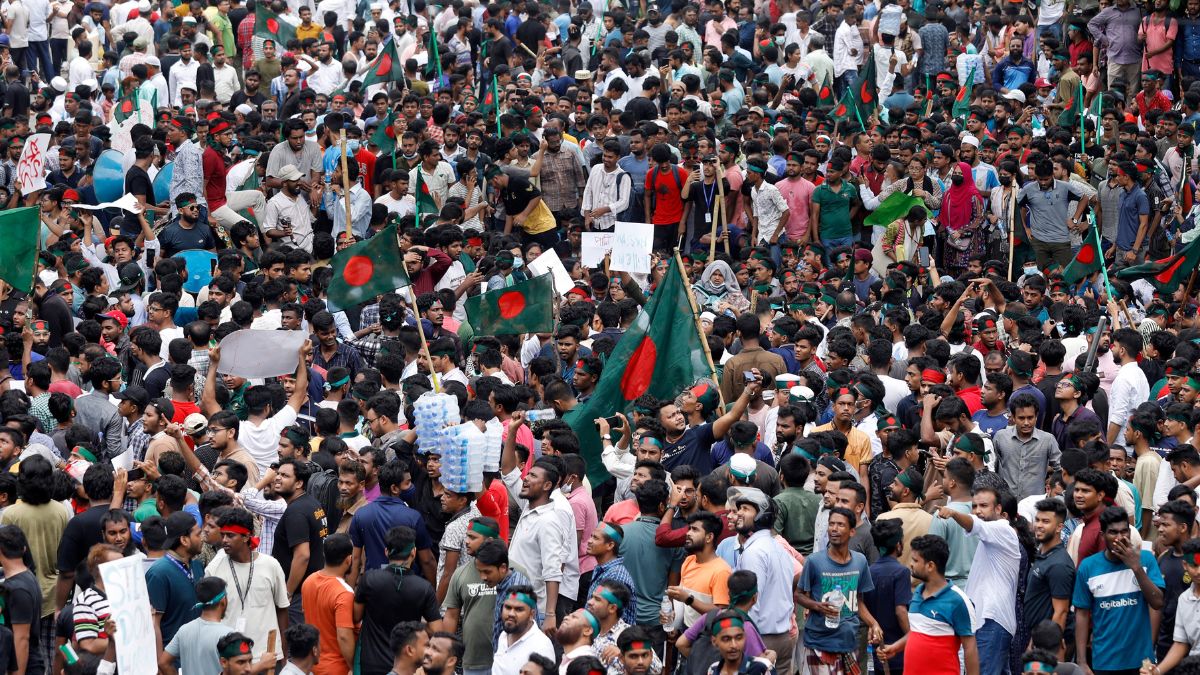)
Bangladesh President Dissolves Parliament: What’s Next for the Nation Amidst Political Turmoil?
In a dramatic turn of events, Bangladesh’s President Mohammed Shahabuddin has dissolved parliament, paving the way for new elections and ending a period of intense political unrest. This move follows the dramatic resignation of Prime Minister Sheikh Hasina, who fled the country amidst violent protests against her rule. Here’s a comprehensive breakdown of the unfolding situation and its implications for Bangladesh.
President Dissolves Parliament: A New Chapter for Bangladesh
On Tuesday, President Mohammed Shahabuddin took decisive action by dissolving the parliament. This critical step is aimed at facilitating new elections and restoring stability to the country. Here’s what you need to know:
- Background: The political turmoil began when Prime Minister Sheikh Hasina faced massive protests. The unrest, triggered by dissatisfaction with a quota system favouring her party, escalated into violent clashes.
- Hasina’s Departure: Amidst the chaos, Hasina resigned and fled to India, leaving behind a nation in upheaval. The resignation marked a significant shift in Bangladesh’s political landscape.
Release of Opposition Leader Khaleda Zia
In a move that has stirred further debate, President Shahabuddin ordered the release of Khaleda Zia, a prominent opposition leader and rival to Hasina. Here’s a summary of Zia’s situation:
- Background: Khaleda Zia had been under house arrest following her conviction on corruption charges in 2018. The charges were seen by many as politically motivated.
- Public Reaction: Zia’s release has been welcomed by her supporters and has further fueled the sense of change sweeping through Bangladesh.
The Call for Muhammad Yunus
As the country anticipates the formation of an interim government, there is growing support for Muhammad Yunus, the Nobel Peace Prize laureate, to lead it. Here’s the current state of affairs:
- Yunus’s Role: Yunus, known for his pioneering work in microfinance, is seen by many as a unifying figure. Protest leaders have proposed him as a candidate for leading the interim government.
- Yunus’s Response: Although Yunus is currently in Paris, he has expressed support for the changes, and student leader Nahid Islam claims Yunus has agreed to the role.
The Military’s Involvement and Interim Government Formation

The military’s role has been significant in managing the crisis. Here’s a brief overview of their involvement:
- Temporary Control: General Waker-uz-Zaman, the top military commander, has taken temporary control of the country. This move aims to restore order and oversee the transition to a new government.
- Interim Government: Both the military and the figurehead president have pledged to form an interim government soon to handle the electoral process.
Impact of the Political Unrest
The recent events in Bangladesh have had far-reaching consequences. Here’s a snapshot of the impact:
- Violence and Casualties: The unrest has resulted in at least 109 deaths, including 14 police officers. The violence has also led to numerous injuries and widespread property damage.
- Economic and Social Effects: The political instability has exacerbated existing issues, including high unemployment, corruption, and the impacts of climate change. The unrest has also led to disruptions in daily life, including a temporary suspension of airport operations in Dhaka.
International Reactions and Future Prospects
The international community has been closely monitoring the situation in Bangladesh. Here’s a summary of key international responses:
- UN’s Stance: The United Nations has called for a transition of power that aligns with Bangladesh’s international obligations and ensures inclusive participation.
- India’s Involvement: Indian officials confirmed Hasina’s arrival in India and noted that she sought approval for her stay. The exact nature of her future plans remains unclear.
What Lies Ahead for Bangladesh
As the country braces for new elections, several key questions remain:
- Stability and Order: Will the new interim government and upcoming elections bring the stability that Bangladesh desperately needs?
- Role of Muhammad Yunus: How will Yunus’s potential leadership impact the nation’s recovery and political landscape?
- Long-Term Reforms: What structural changes will be implemented to address the underlying issues that led to the recent unrest?
Conclusion
The dissolution of parliament by President Mohammed Shahabuddin marks a pivotal moment in Bangladesh’s political history. As the country navigates through this period of transformation, the international community and local stakeholders will be watching closely. With new elections on the horizon and a potential interim leadership led by Muhammad Yunus, Bangladesh stands at a crossroads, with its future hanging in the balance.
Additional Resources:


